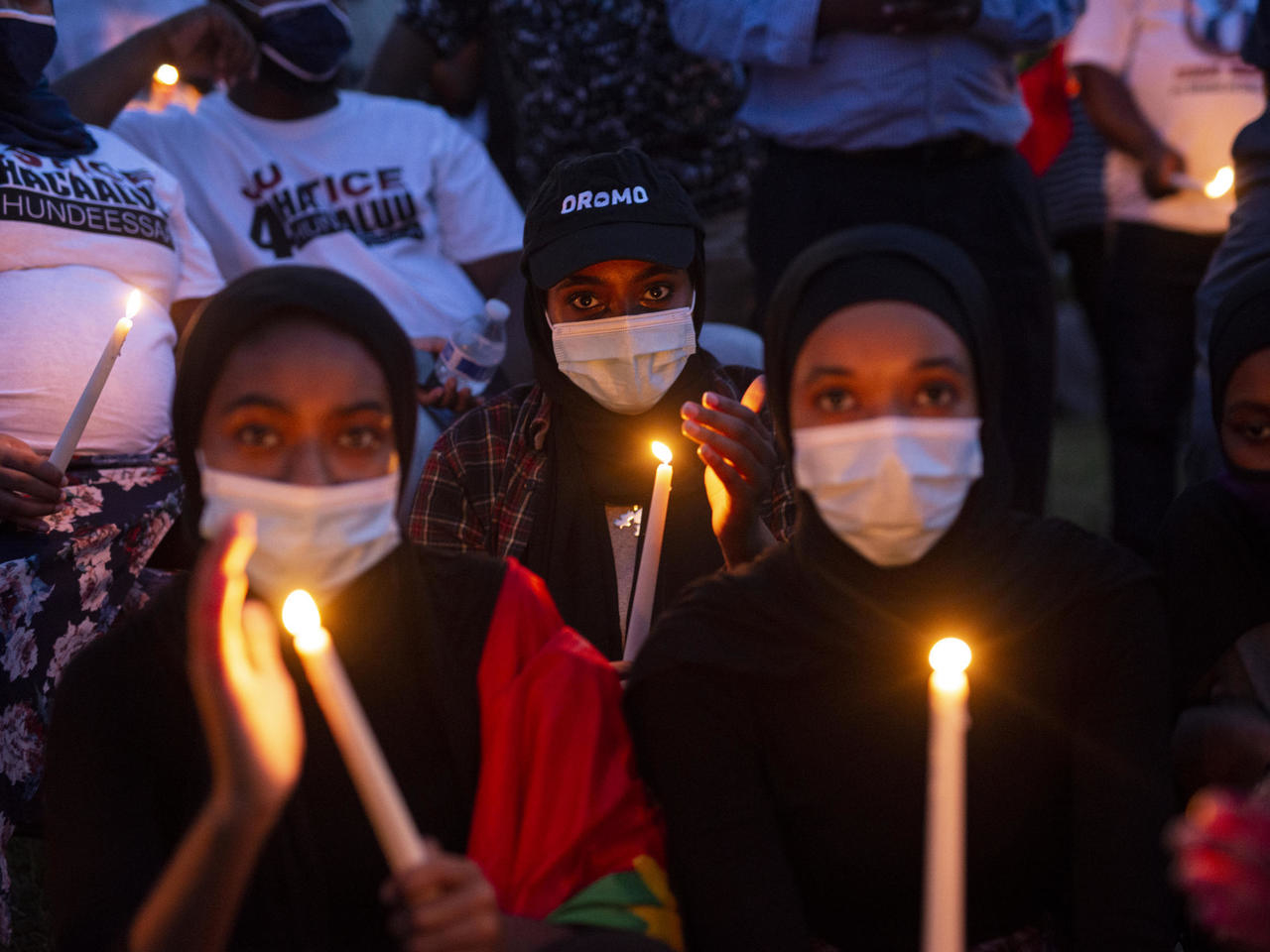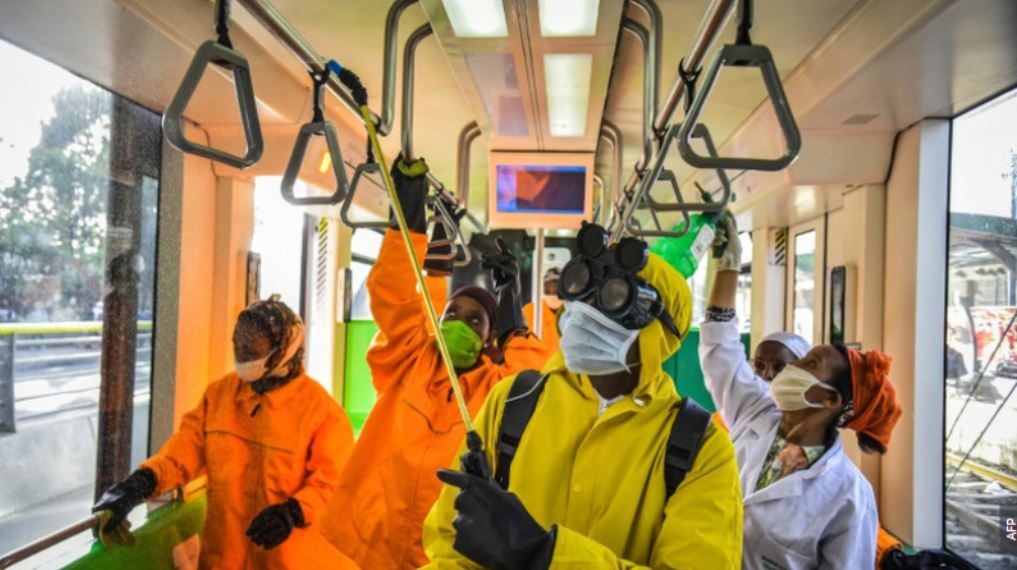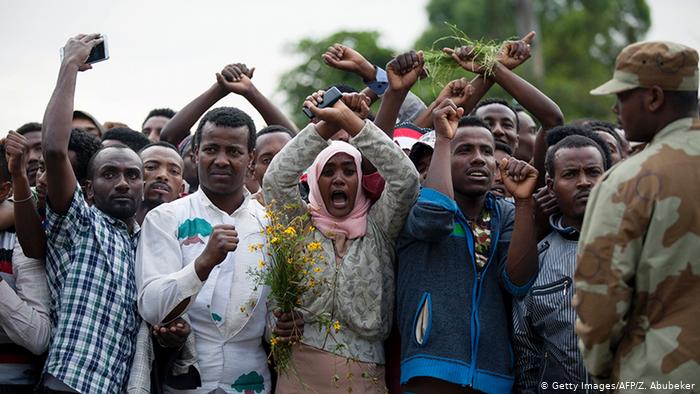Ethiopia is undergoing a historic political transition that has opened civic space and propelled democratic reforms. Despite the extraordinary transformation, significant long-standing conflict dynamics have kept Ethiopia on fragile state and conflict watch lists for decades.
Additionally, the country is experiencing new factors driving instability, including drought, the COVID-19 pandemic, indefinitely postponed elections, and violent demonstrations.
To make matters worse, the US government announced a plan to halt essential foreign assistance to Ethiopia due to its Nile River dam dispute with Egypt. Washington’s move undercuts Ethiopia’s democratic trajectory and may further destabilize Africa’s second-most populous nation.
Brewing Discontent and Slashed Funding
New and old conflict dynamics, coupled with the US proposed foreign assistance cuts, are a serious threat to Ethiopia’s fragile stability and nascent political reforms.
In recent months, opposition parties have grown increasingly vocal against Prime Minister Abiy Ahmed’s reforms and actions. Instability and discontent with his leadership are particularly acute in Oromia, where violent conflict has been the most intense.
The international community and Ethiopians have also been highly critical of the government’s internet shutdowns during the protests.

As Ethiopia sits at this precarious point in its political transition, it is a serious mistake to halt foreign assistance. While the cuts would not impact US assistance for emergency humanitarian relief, food assistance, or health programs addressing COVID-19 and HIV/AIDS, they would affect security assistance and training and broader development assistance funding.
The sectors affected and programs slashed are precisely those needed to advance critical reforms and stabilize Ethiopia’s delicate political transition.
Before the proposed halt of foreign assistance, there were already serious concerns that the United States had been slow to adapt and provide aid targeted towards addressing the causes of violent conflict and aid the political transition.
Significant aid — including investment in much-needed peacebuilding priorities in governance, climate resilience, trauma healing, and reconciliation — is critical to ensure Ethiopia’s historic political transition is successful and sustainable.
Ethiopia and COVID-19
USAID’s Office of Transition Initiatives established a new program in early 2020, around the same time the pandemic hit. This program was launched to work with the Ethiopian government to advance critical reforms and stabilize the political transition.
Even though PM Ahmed’s political reform agenda was not without its shortcomings, the COVID-19 pandemic has contributed to its derailment. The Ethiopian government announced the first case of the virus in early March 2020. Around two weeks later, Ethiopia’s electoral board once again postponed the elections scheduled for August 2020, citing public health concerns.

The elections are critical for the current Ethiopian government — which promised Ethiopia’s first free and legitimate elections. The postponed elections are worsening mistrust, and opposition leaders are growing more disgruntled with the Abiy government, accusing him of deliberately postponing elections.
While elections are integral to the overall legitimization of Ethiopia’s democratic transition, elections are often a trigger of violence in fragile countries.
Great Power Competition in Africa
Additionally, there are serious concerns within the US government of great power competition in the region. In February 2020, US Secretary of State Mike Pompeo visited Ethiopia as part of Donald Trump administration’s strategy to counter China’s Belt and Road Initiative in Africa.
The United States and the World Bank were mediating between Ethiopia, Egypt, and Sudan over the dam, but negotiations ended in February when Ethiopia rejected a binding agreement on the dam’s operation.
The dam will bring power to over 65 million Ethiopians and has become a symbol of national pride and regional power vis a vis Egypt. Domestically, it is also proving to be a good distraction for the Ethiopian government to take attention away from Ethiopia’s simmering instability.
Instability in the Horn of Africa
As Ethiopia’s political transition is tenuous and domestic, regional, and international tensions in the Horn of Africa are escalating, now is not the time to halt critical programs needed to support reform efforts to stabilize Ethiopia, especially during the global pandemic.
The risk is too high. The international community cannot allow political reforms to fail. The dam is an international crisis that must be settled through a mediated agreement, and the United States should not use much needed foreign assistance targeted to help support political reforms as a stick to get Ethiopia back to the negotiating table.
Stopping development assistance will lead to even greater instability in Ethiopia and the region, resulting in loss of life, the reversal of development gains, and fueling further great power competition that undercuts American national security.
Disclaimer: The views and opinions expressed here are those of the author and do not necessarily reflect the editorial position of The Globe Post.






















